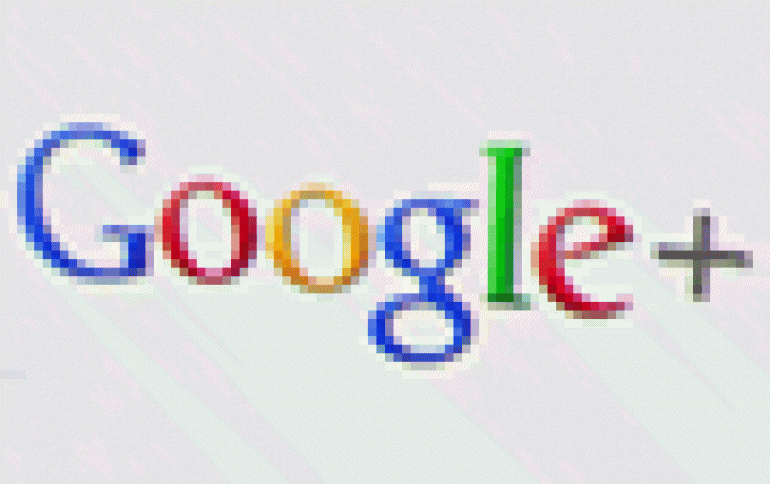
Google Takes On Facebook With Google Plus Social Service
After many attempts to crack social networking, Google today is taking another stab at fending off Facebook with a new service called Google+.
"We'd like to bring the nuance and richness of real-life sharing to software. We want to make Google better by including you, your relationships, and your interests. And so begins the Google+ project," Vic Gundotra, Senior Vice President, Engineering at Google wrote at the company's blog.
The service, unveiled on Tuesday, ties together all of Google's online properties.
 Central to Google Plus are so-called "circles" of friends and acquaintances. Users can organize contacts into different customized circles -- family members, co-workers or college friends, say -- and share photos, videos or other information only within those smaller groups.
Central to Google Plus are so-called "circles" of friends and acquaintances. Users can organize contacts into different customized circles -- family members, co-workers or college friends, say -- and share photos, videos or other information only within those smaller groups.
"From close family to foodies, we found that people already use real-life circles to express themselves, and to share with precisely the right folks. So we did the only thing that made sense: we brought Circles to software. Just make a circle, add your people, and share what's new - just like any other day, " Gundotra added.
As with Facebook's service, Google Plus has a central Web page that displays an ever-updating stream of the comments, photos and links being shared by friends and contacts.
A toolbar across the top of most of Google's sites allows users to access their personalized data feed. They can then contribute their own information to the stream.
 The service also includes +Sparks, an online sharing engine aimed at striking up conversations about pretty much anything. Google believes that great content can lead to great conversations. Sparks delivers a feed of contagious content from across the Internet. Available in over 40 languages, users can talk about any topic they want, by adding their interests. Sparks will offer them always something to watch, read and share - with just the right circle of friends.
The service also includes +Sparks, an online sharing engine aimed at striking up conversations about pretty much anything. Google believes that great content can lead to great conversations. Sparks delivers a feed of contagious content from across the Internet. Available in over 40 languages, users can talk about any topic they want, by adding their interests. Sparks will offer them always something to watch, read and share - with just the right circle of friends.
With Google+ , the company also focused on things (like GPS, cameras, and messaging) to make users' pocket computers even more personal. So with Google+, users can add their location information to every post. With Instant Upload, while users are snapping pictures, Google+ adds their photos to a private album in the cloud. Google Plus users will be able to access the photos from any computer and share them.
Google+ also includes Huddle, a group messaging experience that lets everyone inside the circle know what's going on, right this second.
Google Plus will also offer a special video chat feature called Hangouts, in which up to 10 people can jump on a conference call.
Google is also betting on what it says is a better approach to privacy, a hot-button issue that has burned Facebook, as well as Google, in the past.
"In the online world there's this 'share box' and you type into it and you have no idea who is going to get that, or where it's going to land, or how it's going to embarrass you six months from now," said Google Vice President of Product Management Bradley Horowitz.
"For us, privacy isn't buried six panels deep," he added.
Facebook, which has been criticized for confusing privacy controls, introduced a feature last year that lets users create smaller groups of friends.
Google Plus will be rolled out to a limited number of users in what the company is calling a field trial. Only those invited to join will initially be able to use the service. Google did not say when it would be more widely available.
The service, unveiled on Tuesday, ties together all of Google's online properties.
 Central to Google Plus are so-called "circles" of friends and acquaintances. Users can organize contacts into different customized circles -- family members, co-workers or college friends, say -- and share photos, videos or other information only within those smaller groups.
Central to Google Plus are so-called "circles" of friends and acquaintances. Users can organize contacts into different customized circles -- family members, co-workers or college friends, say -- and share photos, videos or other information only within those smaller groups.
"From close family to foodies, we found that people already use real-life circles to express themselves, and to share with precisely the right folks. So we did the only thing that made sense: we brought Circles to software. Just make a circle, add your people, and share what's new - just like any other day, " Gundotra added.
As with Facebook's service, Google Plus has a central Web page that displays an ever-updating stream of the comments, photos and links being shared by friends and contacts.
A toolbar across the top of most of Google's sites allows users to access their personalized data feed. They can then contribute their own information to the stream.
 The service also includes +Sparks, an online sharing engine aimed at striking up conversations about pretty much anything. Google believes that great content can lead to great conversations. Sparks delivers a feed of contagious content from across the Internet. Available in over 40 languages, users can talk about any topic they want, by adding their interests. Sparks will offer them always something to watch, read and share - with just the right circle of friends.
The service also includes +Sparks, an online sharing engine aimed at striking up conversations about pretty much anything. Google believes that great content can lead to great conversations. Sparks delivers a feed of contagious content from across the Internet. Available in over 40 languages, users can talk about any topic they want, by adding their interests. Sparks will offer them always something to watch, read and share - with just the right circle of friends.
With Google+ , the company also focused on things (like GPS, cameras, and messaging) to make users' pocket computers even more personal. So with Google+, users can add their location information to every post. With Instant Upload, while users are snapping pictures, Google+ adds their photos to a private album in the cloud. Google Plus users will be able to access the photos from any computer and share them.
Google+ also includes Huddle, a group messaging experience that lets everyone inside the circle know what's going on, right this second.
Google Plus will also offer a special video chat feature called Hangouts, in which up to 10 people can jump on a conference call.
Google is also betting on what it says is a better approach to privacy, a hot-button issue that has burned Facebook, as well as Google, in the past.
"In the online world there's this 'share box' and you type into it and you have no idea who is going to get that, or where it's going to land, or how it's going to embarrass you six months from now," said Google Vice President of Product Management Bradley Horowitz.
"For us, privacy isn't buried six panels deep," he added.
Facebook, which has been criticized for confusing privacy controls, introduced a feature last year that lets users create smaller groups of friends.
Google Plus will be rolled out to a limited number of users in what the company is calling a field trial. Only those invited to join will initially be able to use the service. Google did not say when it would be more widely available.




















